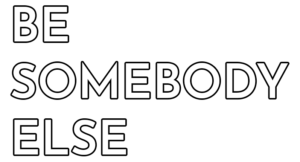Does your mind turn angrily to things you wish you could forget? It’s as if someone’s turned the heat up too high; a kind of friction with the past. These things seem to hang around waiting for an opportunity to get noticed. Maybe a small thing occurs and suddenly you’re back with them, all over again.
Resentful thoughts involve events in which you believe you were unable to represent yourself properly. For one reason or another the truth of the situation remains unrecognised. If you want to have fewer angry, resentful thoughts you need to feel recognised. Doing this can be like adjusting the thermostat of a heating system.
Everyday things say everything
Think about everyday things in your life and see if you can rate them in terms of how angry they make you feel now. Not when they happened, but right now. Hopefully, with them being everyday things, the majority will score a zero. But if they score twos or threes you may have a problem. All of those twos and threes can add up to a storm that feels more like a seven plus three.
Zero feels like a two
What can you do if a zero feels like a two? The ‘whole memory thing’ is liable to keep you thinking about the past, but you need to do something about the future, and you’d better get started.
Are your ‘everyday things’ actually things that are crucial to you but ones that the people around you ignore? Is there a theme underlying everything you feel angry about? Perhaps this theme rather than a lot of different events explains why you are feeling two or three, or maybe even more.
It’s very likely you are angry about something in general rather than the effects of specific things in isolation. Those ‘everyday things’ will involve a particular sense of injustice that you need to give meaning to. Maybe it’s something you can feel much more than describe. That’s okay, go with the feeling and some thoughts will arrive.
The justice emotion
Anger is the justice emotion. It should rise up when you experience what you regard as injustice, motivating you to stop or start something. If you experience a lot of injustice you’ll be seeing it in all kinds of things, small as well as large. The size of the ‘thing’ itself doesn’t matter: injustice is most likely to lurk in the small things people do that they think about least. At the same time they show themselves most.
If I find myself getting treated poorly because of something intrinsic to me (I get looked at in a certain way, for example, as I enter a building and am met with silence), and maybe I then see someone else being treated differently because of how they intrinsically are (they get smiled at and greeted respectfully) … my day is going to take a hit of anger. Moments of injustice like these will feel like links on a chain.
Search for openness
Look for people who are open to you as you are. Search for that openness in as many places as you can: you’ll feel it right away. Maybe you have stopped looking. You’re ability to SEEK has gone to sleep. Wake it up by finding the feeling of openness.
The feeling you get when you connect in that openness is the feeling of understanding, and understanding is the best signpost to justice. Trying to find justice on your own is the worst. Looking for it with other people, even if you find those other people in something like a book or a film, is better.
This is how you can start to turn the thermostat down.

